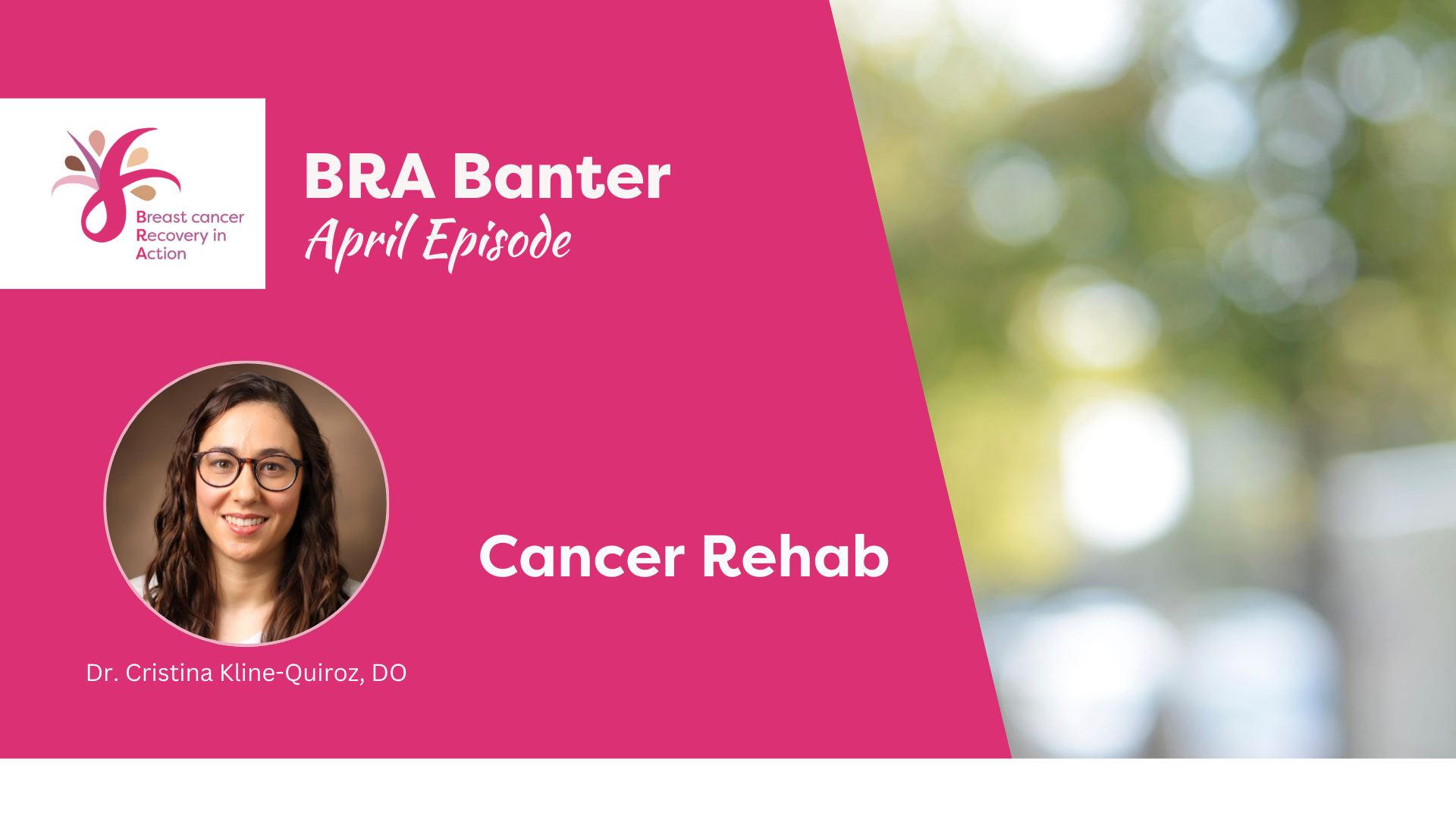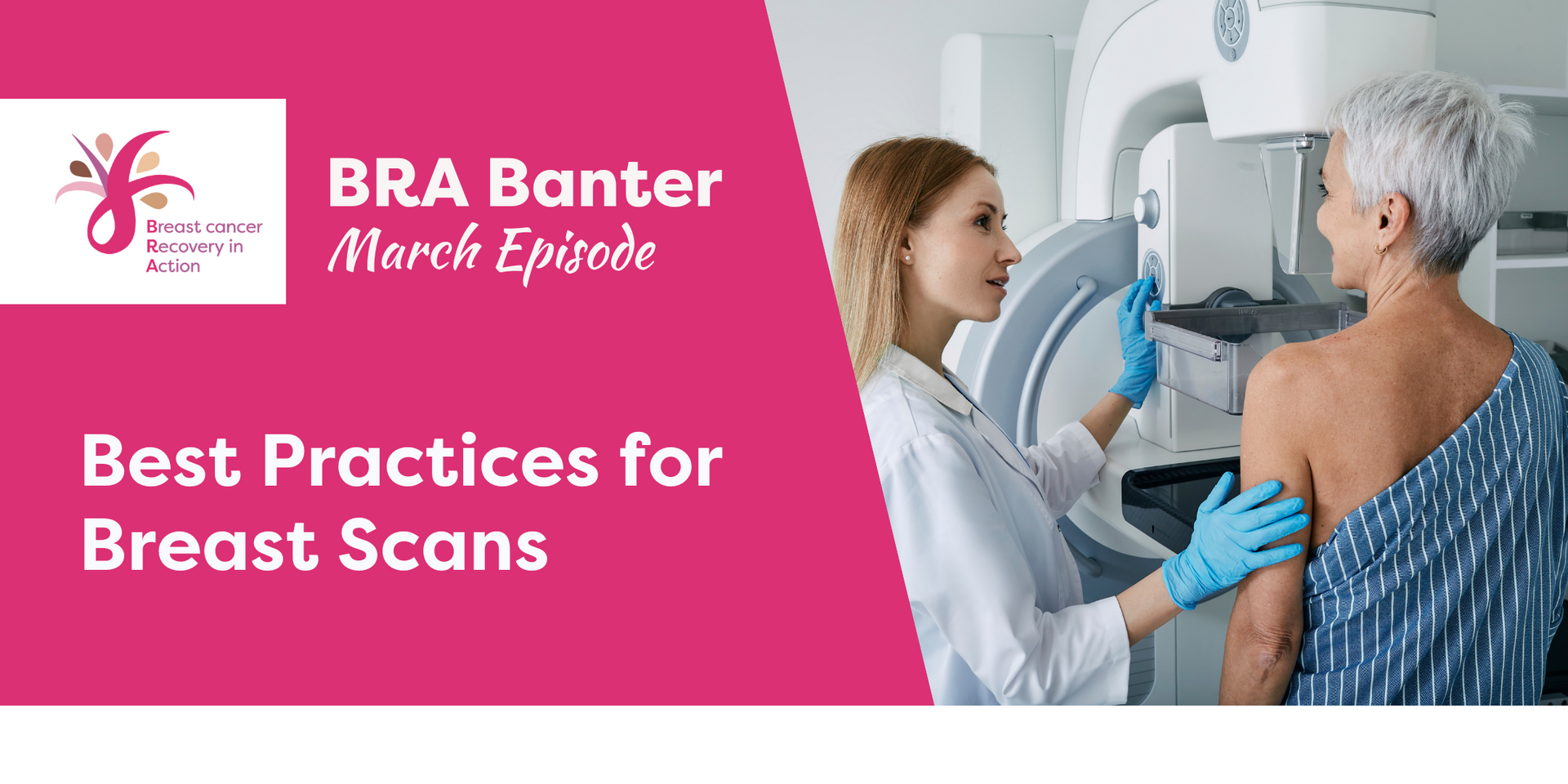March is recognized as Triple Negative Breast Cancer (TNBC) Awareness Month.
Triple Negative Breast Cancer (TNBC) is breast cancer with cancer cells that don't have estrogen or progesterone receptors (ER/PR) AND don't make the HER2 protein.
Facts about TNBC:
- It grows and spreads faster than other kinds of breast cancer.
- There are limited treatment options.
- It accounts for about 10-15% of all breast cancers.
Vanderbilt Doctors Answer Your Questions
We polled some triple-negative breast cancer patients to see what questions they would like to ask our medical experts. BRA is excited and honored to welcome medical experts, Dr. Ben Park and Dr. Laura Kennedy, from Vanderbilt Medical Center to provide answer to those questions.
A huge thank you to Vanderbilt University Medical Center and Vanderbilt Breast Center. Thank you to Dr. Park and Dr. Kennedy for taking the time out of your busy schedules to answer our questions! We appreciate all the work you have done and continue to do for the breast cancer community.
Question 1: I have TNBC and finished treatment a little over a year ago. Should I talk to my doctor about taking Keytruda to prevent recurrence?
Answer: Dr. Park
"Hi there, I think it's always a good question to discuss issues like this with your oncologist, as it depends on stage and risk of recurrence and knowing that this would be extrapolating and not really following the Keytruda trial. I personally would have a very high threshold for recommending Keytruda in this manner since it is not how patients were treated on the study (assuming your stage of cancer was eligible) and immunotherapy is not without side effects, including rarely some very serious ones."
Answer: Dr. Kennedy
"I agree with Dr. Park on this – it is very hard to know if pembrolizumab (Keytruda) is helpful for reducing recurrence risk without receiving it as part of pre-surgical treatment."
Question 2: Would you recommend any of these new treatment options coming out for triple-negative like clinical trials to keep reoccurrence low?
Answer: Dr. Park
"YES! We're all about trials as we would never get drugs approved without them. As far as specific ones, it really depends on the situation (e.g. stage, whether neoadj. therapy will be used; looking for minimal residual disease and treating it, etc.). I/we are happy to discuss with anyone if they are interested in trials and what we may have available."
Answer: Dr. Kennedy
"For women with residual triple-negative breast cancer after pre-surgical chemotherapy AND a BRCA1 or BRCA2 mutation, there is now the option for olaparib (a PARP inhibitor) post-operatively as a strategy to reduce recurrence risk. "
Question 3: I have two triple negative tumors. I tested negative for BRCA. I'm worried about my two young daughters. Should I have them go through genetic testing?
Answer: Dr. Park
"Generally no since you were negative. That said, there are newer tests using RNA by Ambry and In vitae that will pick up a few more mutations. I would talk to your genetic counselor about these."
Answer: Dr. Kennedy
"We generally encourage patients to have repeat genetic testing later (> 5 years from original testing) if they have a negative result initially because we learn about new mutations all the time. "
It is interesting to hear that about new tests and new mutations. Changes about what we know and how we treat breast cancer continue to evolve!
Question 4: The BRCA gene seems to be a contributing factor to TNBC, if you don't have the BRCA gene that what factors contribute to getting TNBC?
Answer: Dr. Park
"It is really unclear though we do know TNBC are found at greater frequency in Black patients vs. White patients. And really it is the BRCA1 gene that predisposes to TNBC; BRCA2 is usually related to ER positive disease. But at the end of the day, it's still all about estrogen exposure as mentioned in a previous question.
Men can and do get breast cancer but it is about 100 fold less (or more) than women (even in men with BRCA1 or 2 mutations) and TNBC ironically is almost never found in male breast cancer. Male breast cancer is almost always estrogen receptor positive! So clearly being a woman is still the highest risk factor for getting breast cancer and that includes TNBC."
Didn't know that most male cancers are ER positive! Interesting to learn more about TNBC and how race and gender are reflected in the numbers.
Question 5: What causes TNBC to be so aggressive?
Answer: Dr. Park
"Well remember that not all TNBC is the same. There are subtypes that were defined right here at Vanderbilt.
But most are "aggressive" and that is because the DNA mutations/mistakes in these cancers lead to faster growing cells with higher ability to metastasize.
Why or how TNBC develops is still not completely known since they don't have estrogen receptors, but some believe that high doses of estrogens such as those found in the breasts and ovaries, can directly damage DNA and this is how/why TNBC develops."
More subtypes? Interesting to learn how breast cancer has so many different forms. We are continually thankful for the work happening at Vanderbilt and other medical facilities.
Question 6: What are ways (medicine or lifestyle) to keep reoccurrence low?
Answer: Dr. Park
"Many studies have shown that keeping an ideal body weight/body mass index, exercise and a healthy diet can help with reducing the risk of recurrence. There are also some older studies suggesting that reducing stress and treating depression can also help reduce the risk."
Great advice! Know that BRA groups is all about helping you reach all these goals. No matter where you are in your cancer journey, we are here to support you.




